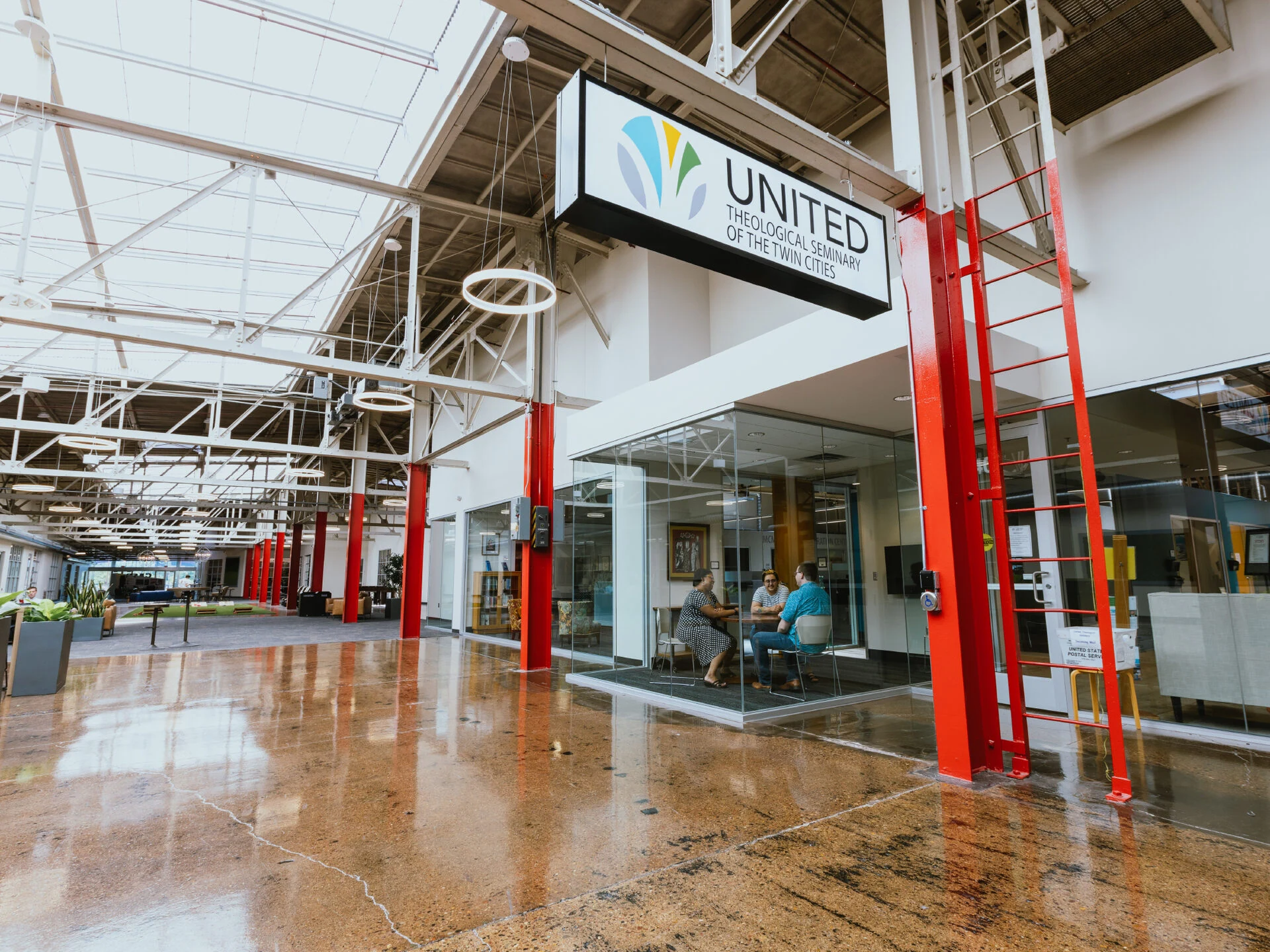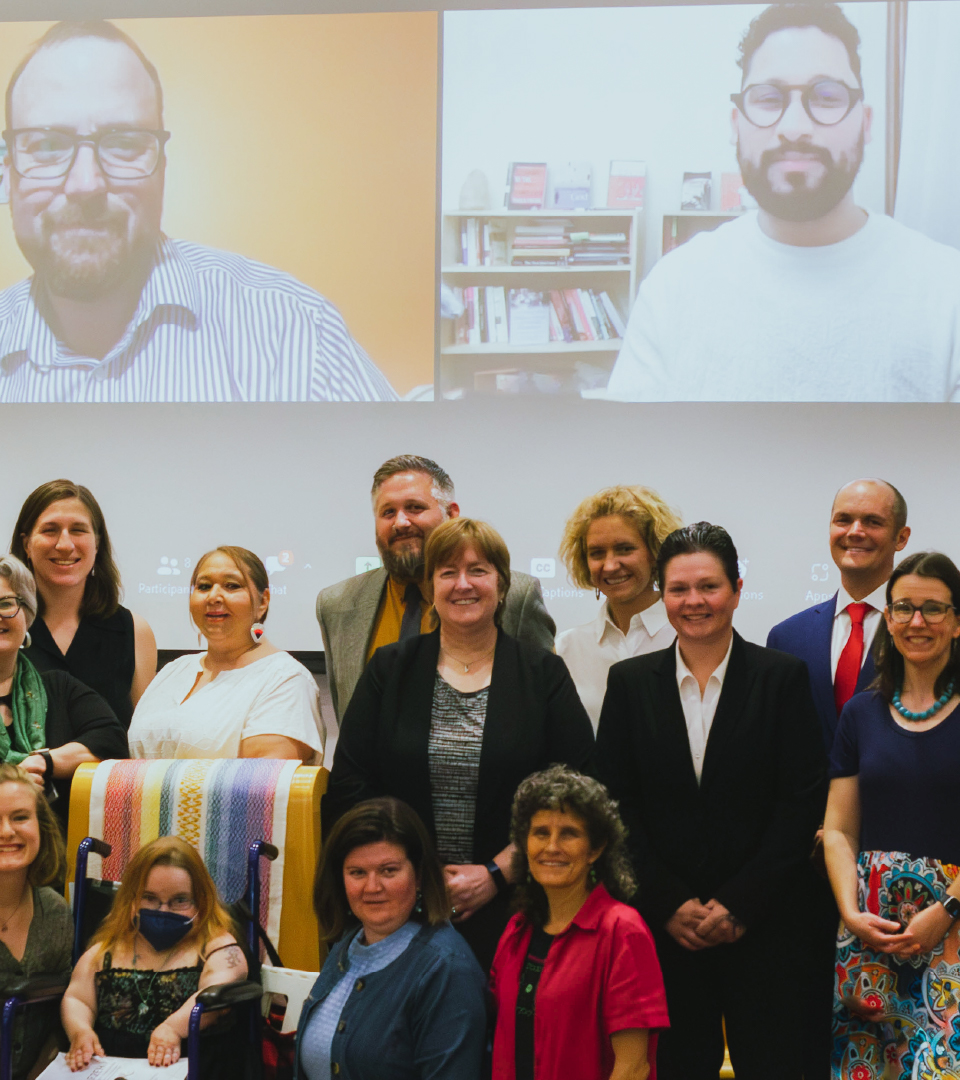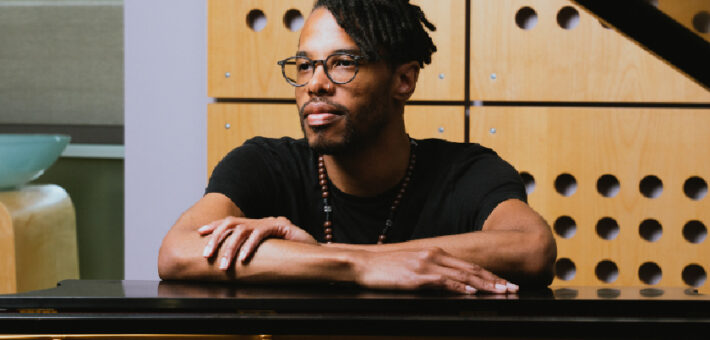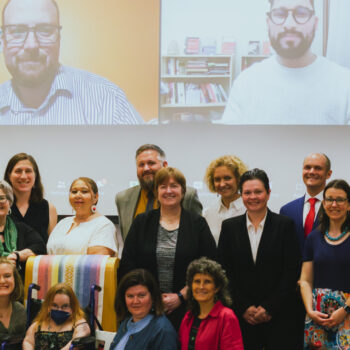Lifting Voices for Social Transformation
United Theological Seminary of the Twin Cities is strongly committed to the development of greater global awareness among its students, staff, and faculty. This is a central concern of the academic program and one that is integrated within the curriculum in such a manner that it informs the program of study as a whole.
The approach to this globalizing process is one of enabling students to discern and respond to the church’s ministries by focusing on the following global concerns:
- Social justice issues the world’s people face in common.
- Ecological issues that arise out of the interrelatedness of social reality and the natural environment.
- The church as a global community and how best to further an ecumenical spirit among the various churches, and the most appropriate ways for the church to communicate its message of justice and love to the world community.

Open and Affirming Statement
United Theological Seminary of the Twin Cities, with our roots in the United Church of Christ and our practice of embracing the full diversity of faith expressions and understandings, is a generous and welcoming seminary.
We believe that everyone—from trailblazers and traditionalists to questioners and yearning spirits of every faith background, race, age, disability, national origin, sexual orientation, gender, gender identity and expression, marital status, family structure, and economic and social status—should be free to explore the boundless possibilities and create a loving and beloved community.
Statement on Racial Injustice
Founded in 1962 as an ecumenical seminary by the Christian denomination of the United Church of Christ, United Theological Seminary of the Twin Cities has worked for inclusion and equity since its inception. Yet we recognize that United has benefitted from the legacy of white supremacy in the U.S. and the centering of the white Christian experience, resulting in great spiritual and human cost. We confess that we have been complicit in perpetuating the dominance of white culture and theology and that the implications of this history have too often distorted United’s authentic efforts to build a more just world.
As educators charged with forming faith leaders, we are called to change the narrative and work toward an organizational culture and society in which all human beings are free from violence in all its forms. United’s board of trustees, faculty, administration, staff, and students are committed to challenging structures and systems that perpetuate injustice and the oppression of Black, Indigenous, and people of color.
We will act on this commitment through the education our students receive, our advocacy on issues of justice, and our organizational and individual efforts to dismantle white supremacy and repair harm within United and the organizations with whom we work and serve. As a faith community, we aim to manifest the love at the heart of our diverse traditions through our commitment to justice within our institution and our world.
Statement on United’s Interreligious Engagement
United Theological Seminary of the Twin Cities is an ecumenical graduate school located in a vibrant urban setting. United is a progressive Christian seminary grounded in the liberal Protestant tradition and committed to interreligious engagement. United explores the teachings of Jesus and other prophetic traditions, which we believe call for the deep inclusion and liberation of all people. Rooted in the United Church of Christ, the seminary was formed in 1962 with the merger of Mission House Seminary of Plymouth, Wisconsin, and Yankton School of Theology in Yankton, South Dakota.
What Does “Interreligious Engagement” Mean to United?
United was founded as an ecumenical Christian seminary, “grounded in the liberal Protestant tradition.” As such, we have an original setting and founding identity in the particularity of the Christian religion and primarily its Protestant streams, but with an openness to diversity within Christianity (we were formed with the purpose of being an “ecumenical” seminary).
That ecumenical spirit has expanded in recent years, to incorporate not just diversity within Christianity across denominations and traditions (one of our faculty is Eastern Orthodox, for example), but also across a diversity of religious traditions. While the majority of United students identify as Christian, some identify as Buddhist, Baha’i, Norse Pagan, Wiccan, and others. Some claim a multi-religious identity or may describe themselves as religiously fluid, incorporating in their faith and practice elements of several or multiple religious traditions.
While United is a progressive Christian seminary, our commitment to “interreligious engagement” means that United welcomes students of all faiths and religious traditions (and of none) into our community. We acknowledge that United is not equipped, whether in resources or in theological and religious training, to provide an equal experience for persons of every religious tradition. Our faculty are primarily trained in Christian theologies, Hebrew, and Christian religious texts, and the majority of our faculty identify as Christian—though there are many variations of Christian identity across our faculty.
All of our faculty and staff are committed to providing a safe and welcoming space for non-Christian students, staff, and faculty and are also committed in our education to co-learning with and from our non-Christian students and faculty. “Interreligious engagement” is not solely about providing hospitality and welcome but also humbly seeking knowledge and insight and growth in our relationships with religious others.
Interreligious Chaplaincy at United
United has seen a steady increase in religious diversity among our student body. This increasing religious diversity has primarily been due to the popularity of our Interreligious Chaplaincy program. The outcomes of the program include providing students with adequate knowledge of multiple religions, including and beyond Christianity, and the ability to engage persons of other religious traditions with sensitivity, awareness, and openness.
We have called the program “interreligious” rather than “multi-religious” because the purpose of the program is to train students to provide spiritual and pastoral care to persons who inhabit religion in innumerably different ways and for whom religions do not function as completely discrete and “clean” dividing lines. Religious practices, theologies, and experiences are not necessarily discrete and definable phenomena that can be neatly categorized separately from each other.
Furthermore, to be trained to be an “interreligious” chaplain or spiritual leader is to have the capacity to engage persons of other religions with skill, awareness, and openness. It does not mean that the chaplain is necessarily a practitioner of those other religions or shares the identity of those other religions. Just as chaplains and ministers should be interculturally aware and competent, they should also be interreligiously aware and competent. In fact, it is the case that religion is an aspect of culture, thus the competencies are not dissimilar in nature.
The interreligious chaplaincy program welcomes Christians, non-Christians, the religiously fluid, and the nones. But the goals of the program are the same for all students: to equip them with skills and knowledge to provide spiritual and pastoral care to persons of different and multiple religious identities and spiritualities.
Interreligious Openness and United’s Overall Curriculum
While the interreligious chaplaincy program has been the strongest impetus for the increased diversity of our student body, non-Christian students also matriculate into other programs at United (the MA program in Religion and Theology, for example, and the MDiv in UU studies—some Unitarian Universalists do not identify as Christian).
The faculty is committed to increasing our ethos of openness and of engagement across all our academic programs and throughout our curriculum, while acknowledging the limitations of our resources, skills, and training. At the same time, we remain committed to our primary identity as a progressive Christian seminary grounded in the liberal Protestant tradition.

The Leadership Center for Social Justice
The Leadership Center for Social Justice seeks to equip, inspire, and empower leaders to faithfully and reflectively engage in concrete, contextual ministry for social justice. In the spirit of faith, hope, and love, the Center supports leaders in developing skills in contextually-sensitive, creative, and effective leadership and social praxis.


